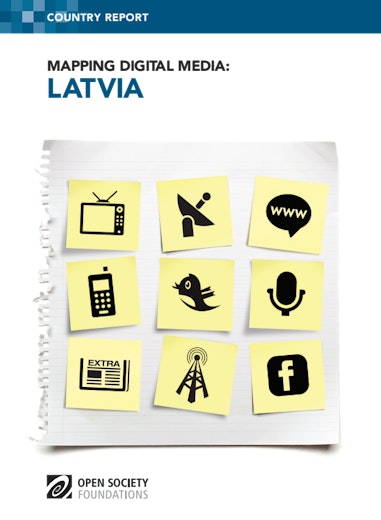The Mapping Digital Media project examines the global opportunities and risks created by the transition from traditional to digital media. Covering 60 countries, the project examines how these changes affect the core democratic service that any media system should provide: news about political, economic, and social affairs.
Latvia ended analog terrestrial broadcasting on June 1, 2010, following a flawed process of spectrum allocation, minimal public consultation, and without ensuring that the public understood the process or that the most vulnerable members of society were assured of access to the digital signal.
The number of terrestrial television channels has increased with digitization, providing an alternative to cable and satellite. However, experts indicate that switch-over has not raised the quality of television content. With viewers' purchasing power limited, free-to-air TV and low-cost channels along with Russian television programs are offered instead of high-quality foreign content. Digitization has not led to better quality journalism, nor has it increased the volume of original news content.
Marginalized groups have gained a public forum on digital platforms, especially on social networks. But there is no evidence that digitization helps to improve the media coverage of those groups. Digitization has offered many tools and opportunities for improved investigative journalism but they are seldom used. Signs of innovative and creative uses of digital media and social networks suggest that digital channels may yet provide a powerful voice for civic activism. But that will require further maturing of civil society.
A universal self-regulatory mechanism has eluded Latvian journalists for decades and digitization has done little to improve this. The current legal framework for allocating digital spectrum needs to be revised and the private intermediary provider of free-to-air digital terrestrial services needs to be eliminated. Legal provisions ensuring transparency of media ownership are insufficient and need to be improved.
Download
-
Mapping Digital Media: Latvia (1.08 Mb pdf file)
Download the complete 102-page report.
-
Digitalo Mediju Karte: Latvija (469.2 Kb pdf file)
Download the complete 99-page report (in Latvian).
